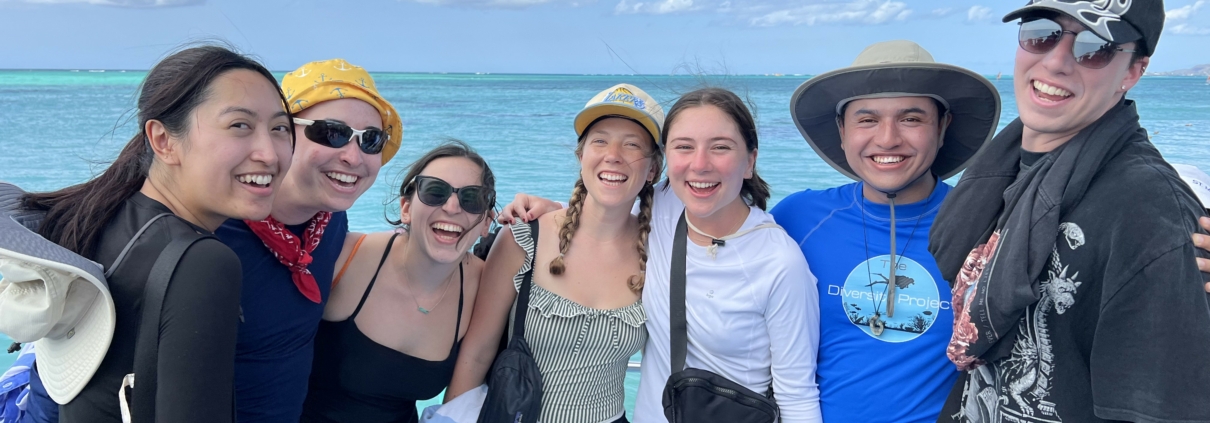Field Work in Trinidad and Tobago
I have always been passionate about disaster management. I grew up in a flood prone area myself, and have lived in Florida the past four years where we face natural disasters of all kinds. That is one of the reasons I decided to pursue a Master’s in Urban Planning at UCLA and wanted to engage in research. This past winter and spring quarter, Global Public Affairs supported me in doing what many urban planning researchers long to do: field work. As part of a partnership between UCLA and the University of the West Indies (UWI), a group of senior environmental science students, a PhD student, and myself embarked on a trip to Trinidad and Tobago, specifically the island of Tobago, to work with other students to test our research hypotheses.
Prior to the trip itself and even before my involvement, the environmental science students had spent the fall quarter conducting an in-depth literature review on as much context they could gather about Tobago. Professors at UWI, located on the island of Trinidad, had identified a need to investigate nature-based solutions to the flooding the island faces, and interrogate government intervention and citizen responses to disasters. When I joined the project in the winter quarter, we began preparation for the trip including GIS mapping and planning community outreach efforts. We connected via Zoom with professors and students at UWI to flesh out our research goals, and before we knew it, it was time to get on a plane!
Arriving in Tobago still feels like a dream (mostly contributed to a very long travel day). We had worked for months planning and hypothesizing and getting excited to meet our UWI counterparts. Between the 8 of us from UCLA and the 20+ students and three professors from UWI, we spent the next week conducting field visits to sites throughout the island including Roxborough, Lambeau, and Castara. We completed a mix of quantitative and qualitative analyses through methods like water collection, wave tracking, and speaking with lots of residents. Through my conversations, I learned how devastating floods are to the area, whose mountainous terrain leaves the water nowhere to go but down into residences. I also learned the efforts that Tobago’s Emergency Management Agency (TEMA) is taking to respond to these situations, and how community members support one another to fill in any gaps.
We also spent time exploring the island and discovering the raw beauty that the locals are so passionate about protecting. Personally though, among all the amazing opportunities we had throughout the week, the highlight for me was creating relationships with the UWI students and staff. It was so wonderful to collaborate with students with such similar interests, but coming from very different contexts. We shared so much knowledge and joy that week that enriched our research experiences and got us through the often nearing 100 degree Fahrenheit days. At the end of the week, we were all very sad to part ways, but filled with so much gratitude for the experience and excited to see where the research went from there.
Upon returning from the trip, spring quarter was about to start. My plan was to participate in a Disaster Management class, where I could share my experiences and continue the research with my peers at UCLA. While learning about the wider geopolitics and structure of the humanitarian aid system as a class, my group put together a report culminating a mix of what we had learned on the trip and further research on nature based solutions in Tobago. This happened in conjunction with the environmental science students writing their report as well, so together we had a fully fleshed out report documenting our research experiences and where future research may want to go.
I truly think I could talk forever about all I gained from this whole experience – seeing the research process from beginning to end (at least the end of my involvement), including our field work to Tobago and bringing the information to a new group in the Disaster Management class. I am changed for the better as a future urban planner and researcher, and am beyond grateful to Global Public Affairs for providing me this opportunity.




